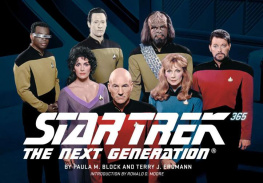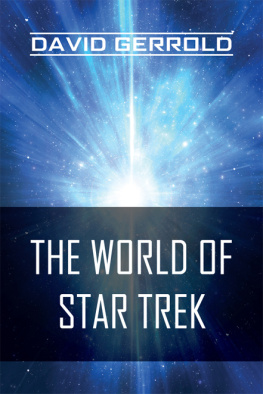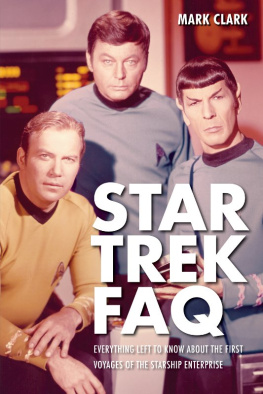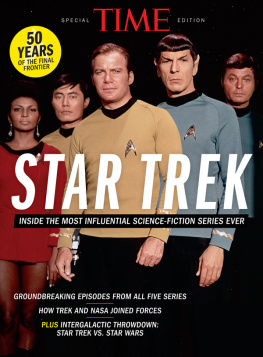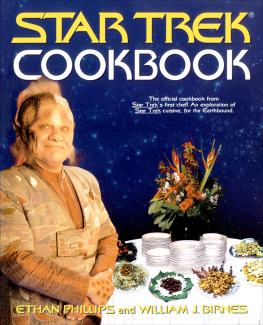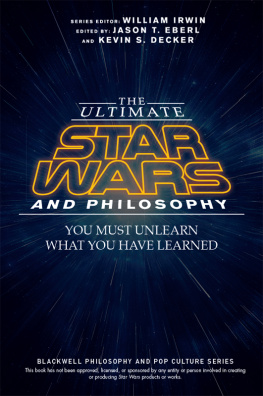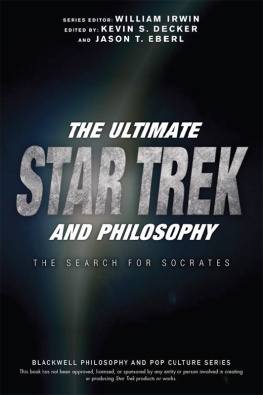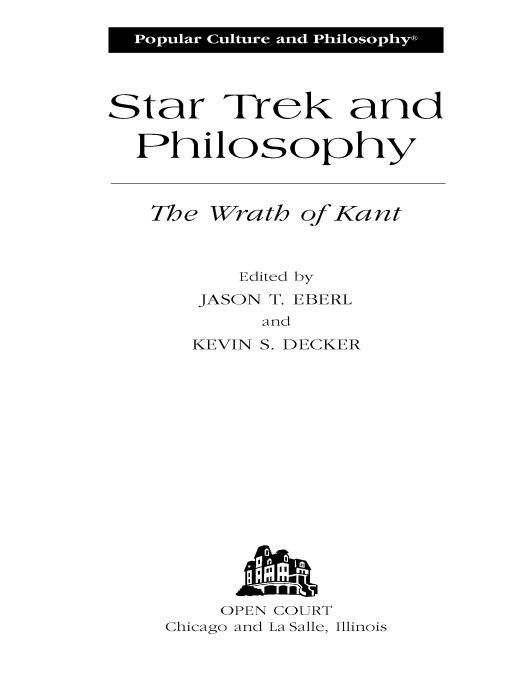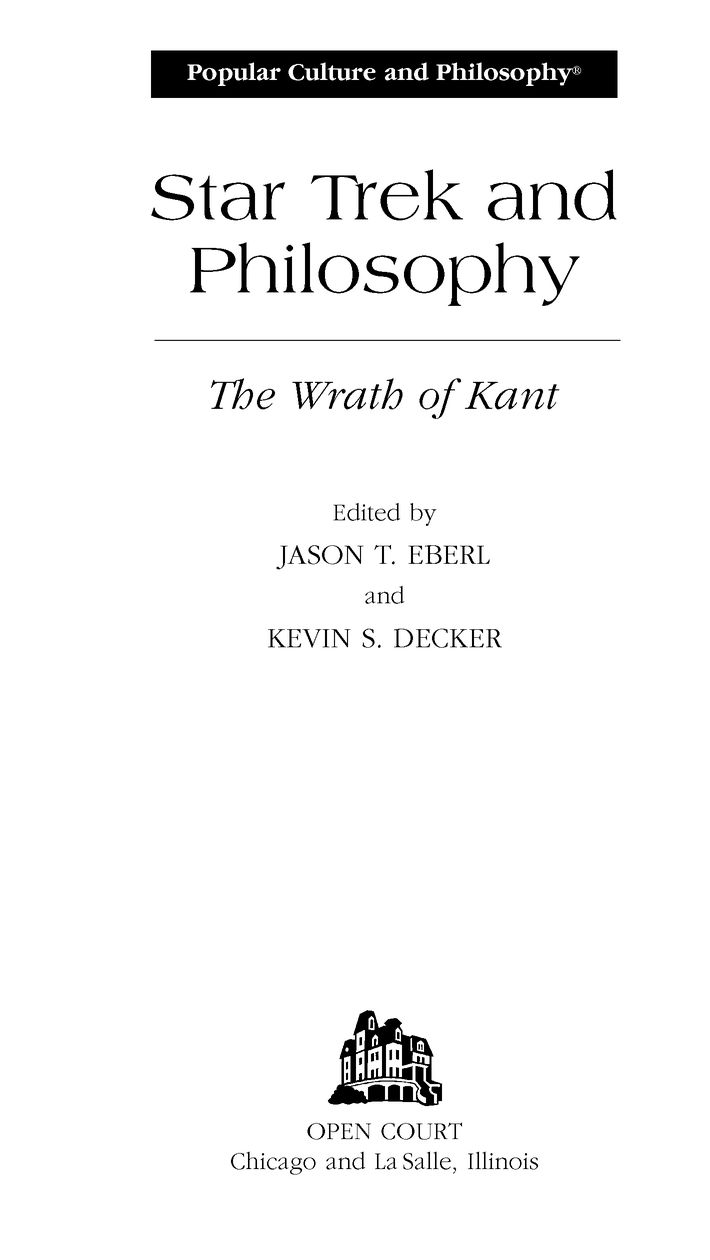Table of Contents
Popular Culture and Philosophy Series Editor: George A. Reisch
VOLUME 1
Seinfeld and Philosophy: A Book about Everything and Nothing (2000)
VOLUME 2
The Simpsons and Philosophy: The Doh! of Homer (2001)
VOLUME 3
The Matrix and Philosophy: Welcome to the Desert of the Real (2002)
VOLUME 4
Buffy the Vampire Slayer and Philosophy: Fear and Trembling in Sunnydale (2003)
VOLUME 5
The Lord of the Rings and Philosophy: One Book to Rule Them All (2003)
VOLUME 6
Baseball and Philosophy: Thinking Outside the Batters Box (2004)
VOLUME 7
The Sopranos and Philosophy: I Kill Therefore I Am (2004)
VOLUME 8
Woody Allen and Philosophy: You Mean My Whole Fallacy Is Wrong? (2004)
VOLUME 9
Harry Potter and Philosophy: If Aristotle Ran Hogwarts (2004)
VOLUME 10
Mel Gibsons Passion and Philosophy: The Cross, the Questions, the Controversy (2004)
VOLUME 11
More Matrix and Philosophy: Revolutions and Reloaded Decoded (2005)
VOLUME 12
Star Wars and Philosophy: More Powerful than You Can Possibly Imagine (2005)
VOLUME 13
Superheroes and Philosophy: Truth, Justice, and the Socratic Way (2005)
VOLUME 14
The Atkins Diet and Philosophy: Chewing the Fat with Kant and Nietzsche (2005)
VOLUME 15
The Chronicles of Narnia and Philosophy: The Lion, the Witch, and the Worldview (2005)
VOLUME 16
Hip Hop and Philosophy: Rhyme 2 Reason (2005)
VOLUME 17
Bob Dylan and Philosophy: Its Alright Ma (Im Only Thinking) (2006)
VOLUME 18
Harley-Davidson and Philosophy:
Full-Throttle Aristotle (2006) Edited by Bernard E. Rollin, Carolyn M. Gray, Kerri Mommer, and Cynthia Pineo
VOLUME 19
Monty Python and Philosophy: Nudge Nudge, Think Think! (2006) Edited by Gary L. Hardcastle and George A Reisch
VOLUME 20
Poker and Philosophy: Pocket Rockets and Philosopher Kings (2006) Edited by Eric Bronson
VOLUME 21
U2 and Philosophy: How to Decipher an Atomic Band (2006) Edited by Mark A. Wrathall
VOLUME 22
The Undead and Philosophy: Chicken Soup for the Soulless (2006) Edited by Richard Greene and K. Silem Mohammad
VOLUME 23
James Bond and Philosophy: Questions Are Forever (2006) Edited by James B. South and Jacob M. Held
VOLUME 24
Bullshit and Philosophy: Guaranteed to Get Perfect Results Every Time (2006) Edited by Gary L. Hardcastle and George A. Reisch
VOLUME 25
The Beatles and Philosophy: Nothing You Can Think that Cant Be Thunk (2006) Edited by Michael Baur and Steven Baur
VOLUME 26
South Park and Philosophy: Bigger, Longer, and More Penetrating (2007) Edited by Richard Hanley
VOLUME 27
Hitchcock and Philosophy: Dial M for Metaphysics (2007) Edited by David Baggett and William A. Drumin
VOLUME 28
The Grateful Dead and Philosophy: Getting High Minded about Love and Haight (2007) Edited by Steven Gimbel
VOLUME 29
Quentin Tarantino and Philosophy: How to Philosophize with a Pair of Pliers and a Blowtorch (2007) Edited by Richard Greene and K. Silem Mohammad
VOLUME 30
Pink Floyd and Philosophy: Careful with that Axiom, Eugene! (2007) Edited by George A. Reisch
VOLUME 31
Johnny Cash and Philosophy: The Burning Ring of Truth (2008) Edited by John Huss and David Werther
VOLUME 32
Bruce Springsteen and Philosophy: Darkness on the Edge of Truth (2008) Edited by Randall E. Auxier and Doug Anderson
VOLUME 33
Battlestar Galactica and Philosophy: Mission Accomplished or Mission Frakked Up? (2008) Edited by Josef Steiff and Tristan D. Tamplin
VOLUME 35
Star Trek and Philosophy: The Wrath of Kant (2008) Edited by Jason T. Eberl and Kevin S. Decker
IN PREPARATION:
The Legend of Zelda and Philosophy (2008) Edited by Luke Cuddy
iPod and Philosophy (2008) Edited by Dylan E. Wittkower
The Wizard of Oz and Philosophy (2008) Edited by Randall E. Auxier and Phil Seng
The Golden Compass and Philosophy (2009) Edited by Richard Greene and Rachel Robison
The Federation Council GEORGE A REISCH
It takes an enormous amount of work to get a Star Trek episode, not to mention a feature film, from idea to screen. It also takes a talented crew of hard-working, creative, and brilliant people, not unlike the Starfleet crews whove graced our screens for the past forty years. So wed like to start by expressing our gratitude to everyone whose talent and dedicationboth in front of and behind the camerabrought Star Trek, in its many incarnations, into our lives. We also wish to salute the equally dedicated officers and crew who helped bring this ship into port.
First of all, our contributors, who, when given strict deadlines, produced brilliant work in half the time, making us believe that they had taken a page from Scottys miracle worker playbook. Next, of course, is the Command Staff at Open Court, Admirals David Ramsay Steele and George Reisch, who gave us the Prime Directive as editors that we, in true Star Trek fashion, always adhered to but sometimes had to bend to save innocent, backward planets from destroying themselves.
A number of sentient creatures from quadrants Alpha to Delta donated valuable time in reviewing drafts of various chapters or influencing the shape of this book in other important ways: Ralph Anske, Susan and Zoe Arp, Jay Ayer, Carole Berg, Ben Dixon, George Dunn, Dave Frisbee, Jason Gatliff, Karl Erbacher, Andy Glasser, Ben Jonson, Kathryn Julyan, Joseph Kapus, Rebecca Kemnitz, Terrance MacMullan, Mimi Marinucci, Randy McKinney, Frank Menetrez, John Muenzberg, Alice Nelson, Wilhelm Nightingale, Gabriel Rocklin, Bernard Rowan, Pam Schierman, Stephen Scott, Tonya Scott, Tim Shiell, Ven Srinivasan, and Ariadne Wilber.
Editing this book on a Galaxy-class starship, we were fortunate to have our wives and precocious, ship-saving children along to help guide us through the glittering cosmic sea of uncertainty. Our wives Jennifer and Suzanne have had to put up with more in-jokes about Vulcan sexuality and daily attempts at refining the Picard Maneuver with polo shirts than anyone should be required to, and we love them for it. We dedicate this book to our children, August, Kennedy, Ethan, and Jackson, who were confident will make the final frontier an amazing place to live.
Ex Astris, Scientia GEORGE A REISCH
From the stars, knowledge is the motto for Starfleet Academy. Captain Picard obviously knows this, as he gives Starfleet cadet hopeful Wesley Crusher a book by the nineteenth century American philosopher William James (Samaritan Snare, TNG). Neither Picard nor Wesley suffer from the delusion that Wesley will be tested on Jamess views on the will to believe for his Academy entrance exam, but Picard knows that being a Starfleet officer takes more than just knowing that the matter/antimatter ratio is always one-to-one or how to open hailing frequencies.


